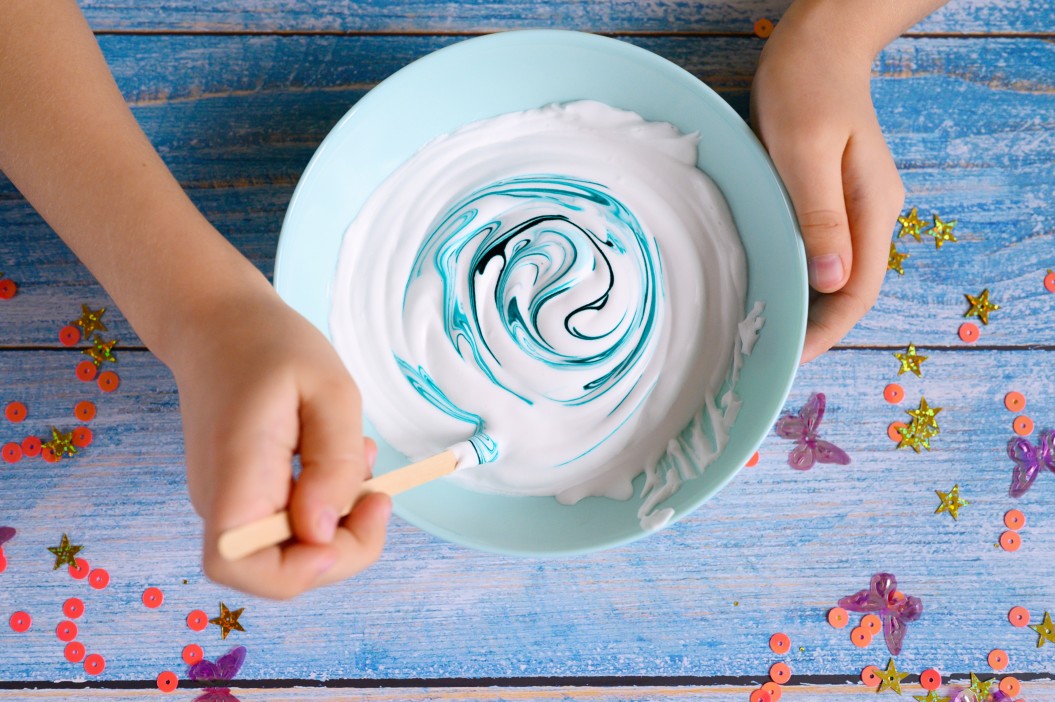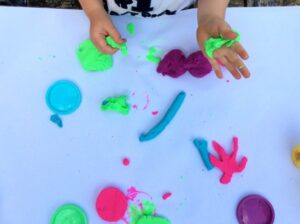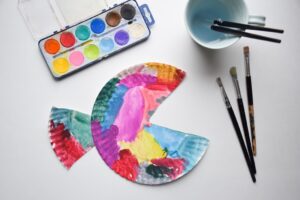More and more, you hear educators stressing the importance of several skills that children should possess before walking through the doors of Kindergarten. However, what we forget is how simple vital skills can be taught to infants, toddlers, and Preschoolers through play, building the foundation they need to be successful in school.
Let’s take a look at how learning with an emphasis on play can help our children grow and thrive!
What is Play-Based Learning?
Play-based learning is a straightforward tool that educators and parents can use to help their Preschool children learn the valuable skills they’ll need in later years. There is plenty of research that states letting children learn while playing (and likely not realizing they’re learning) is a more successful approach than traditional methods.
Did you know that children who freely engage in play are more likely to develop better memory and language skills?
How Can I Encourage Learning Through Play at Home?
Encouraging your child to learn through play is essential to their brain’s development, whether they’re in Preschool or infant care. Critical skills like fine motor skills, strong pencil grips, gross motor skills, and language development are all essential aspects of your young child’s education, whether at home or their daycare.
Play-Based Learning Strategies for Preschool Students
So, how can you encourage your child to learn through play? Below you’ll find three play-based learning strategies that are easy to implement into your home and that don’t require too much time or money, either!
- Play-Dough, Putty, and Slime
- Sensory Bins
- Arts and Crafts
Play-Doh, Putty, and Slime
What Preschool student doesn’t love play-doh, putty, or slime? You should, too! Why? Because the “work” of manipulating play-doh or putty encourages your child to squeeze, stretch and pinch, helping to improve their fine motor skills, which eventually translates into a proper pencil grip in school! But for now, by encouraging your child to make snakes and other clay creations, you’re strengthening their little hands and fingers. A skill that can be hard to teach any other way.
Sensory Bins
Sensory bins are pure gold in the world of play-based learning, even in infant care! The best thing about sensory bins is the ability to adapt the contents and activities for whatever age group is present. For example, by stocking your sensory bin with taste-safe ingredients (think rice, cereal, etc.), and encouraging your toddler to use bowls, spoons, and scoopers to move the rice around, you’re helping them to use all five senses at once!
Arts and Crafts
There are plenty of crafty activities you can set up for your Preschooler on rainy days or holiday breaks, and it’s not necessary to have a state-of-the-art craft room, either!
For infants, it can be as simple as paint and paper in a Ziploc bag—a mess-free way for little ones to use their hands and brains!
For Preschool students gathering everyday supplies like coffee filters, paper plates, pom balls, glue sticks, and markers can allow your child to make fun creatures straight from their imagination while using fine motor skills to wield the glue stick and hold the markers!
Nurturing Through Play
Whether you need Preschool or are looking for quality infant care, asking the right questions is one of the most important things you can do to ensure you and your child feel at home. Here at The Breakie Bunch Learning Center, we pride ourselves on encouraging play-based learning activities to nurture our students, from infants to toddlers and Preschool students! For more information on play-based learning, contact us today!



